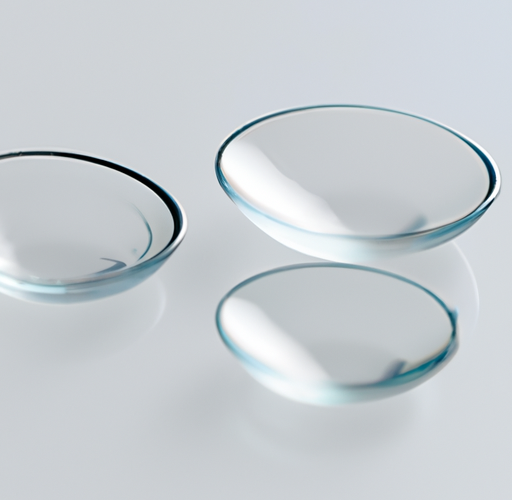Getting the Lowdown on Contact Lens Prescription for Irregular Astigmatism
If you’re reading this article, you likely have irregular astigmatism and need contact lenses to correct your vision. Not to worry, you’re not alone! Many people with astigmatism need contact lenses, and there are specific prescriptions available to fit your unique needs. Here’s what you need to know:
What is Irregular Astigmatism?
Astigmatism is a condition where the shape of the cornea (the clear part of your eye that covers the iris and pupil) causes blurry vision. Specifically, the cornea is shaped more like a rugby ball than a basketball, resulting in distorted vision.
Irregular astigmatism, as the name suggests, is when this condition is particularly severe. In these cases, the cornea is so distorted that standard contact lenses may not be able to correct the vision adequately.
What Types of Lenses Are Available?
If you have irregular astigmatism, there are two main types of contact lenses that can be prescribed:
Toric Contact Lenses
These lenses are designed to correct astigmatism by providing extra power to specific meridians of the eye. Basically, they have different curves and thicknesses in different parts of the lens that help to counteract the distortion caused by the irregular cornea.
Scleral Contact Lenses
These lenses are bigger than traditional contact lenses and sit on the sclera (the white part of your eye) rather than the cornea. They create a smooth and consistent surface for light to pass through, correcting the vision more effectively in cases of irregular astigmatism.
What To Expect When Being Fitted for Lenses
When you go to your optometrist to be fitted for contact lenses, they will use instruments to measure the shape of your eye and the severity of your astigmatism. They may also use a topographer, which is a machine that creates a map of the surface of your eye.
Based on these measurements, your optometrist will determine which type and brand of contact lens will best correct your vision. They may also do a trial fitting to ensure that the lenses fit comfortably and are providing the necessary correction.
Final Thoughts
Living with irregular astigmatism can be frustrating, but with the right prescription contact lenses, your vision can be greatly improved. Make sure to follow your optometrist’s instructions for care and wear to ensure the best possible outcome. And remember, you’re not alone!

